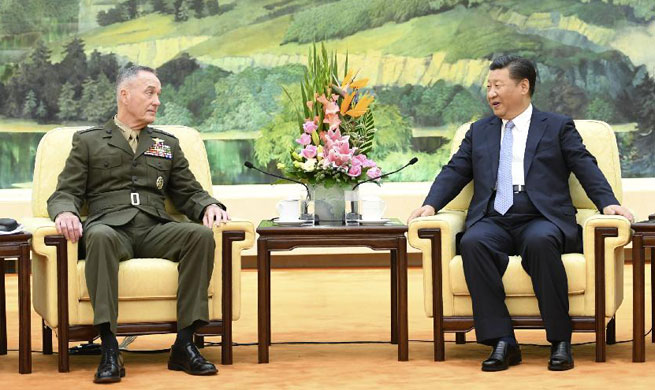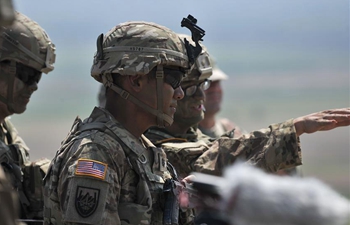BUFFALO, United States, Aug. 17 (Xinhua) -- For many residents in Buffalo, New York, the United States and Canada are one economy that cannot be split. The border between the two countries exists, for sure, but not as a barrier of any kind.
"Canada and the United States are very similar. You cross the border and you wouldn't know it," said Daniel Joyce, partner and lawyer in the law firm of Hodgson Russ LLP.
Joyce focuses his practice on U.S. immigration and cross-border business matters, and has worked in the border city for about three decades. He remembers when free trade began between Canada and the United States in the early 1990s.
"The language is the same. The regulations are similar, corporate law is similar and the judicial system is similar so it was not difficult (for Canadian companies) to become integrated into the United States," Joyce said in an interview with Xinhua.
As he observed, the North American Free Trade Agreement (NAFTA) has opened up a huge marketplace for Canadian companies, which have created a lot of jobs in the United States in return.
According to Joyce, the biggest franchise of the Canadian restaurant chain Tim Hortons in Buffalo owns about 30 stores and has around 700 employees, the majority of which are Americans. If E visas were not granted to Canadians under NAFTA, a great number of jobs would not have been created.
"That's a pretty good leverage," he said.
A large majority of his clients are small businesses and he believed it is the small businesses that make the economy work around the country.
"It's small businesses that create the jobs and that we have to have a free trade policy that allows the free movement of goods, services personnel for small business on both sides of the border," said Joyce.
For others, NAFTA's impact has been less apparent.
"The free trade agreement may have an impact on the transportation industry, but I personally have not felt much change," said Zhou Liya, a member of a local Chinese Business Association.
The United States, Canada and Mexico on Wednesday kicked off the first round of renegotiation on NAFTA amid widespread uncertainty and anxiety over the future of the decades-old trilateral trade deal.
U.S. President Donald Trump, who on the election campaign trail last year called NAFTA "the worst trade deal signed maybe anywhere," has blamed the 23-year-old trade agreement for the U.S. trade deficit and the loss of American jobs. He tentatively decided to abandon the deal in April, but softened his position later on.
Liu Zhen, former assistant professor of economics at the University at Buffalo, thought Trump's tough words were meant only as a negotiation strategy.
He said Trump might just want to gain leverage in talks and get what he wants for the United States from the other two countries, and that the renegotiation would yield some results in the end.
Joyce, agreeing with Liu, said he believed "it's the art of the deal," because Trump understood the importance of global trade as an experienced businessman.
However, Joyce was concerned about the progress of the renegotiation. He hoped that the three countries could outline the changes they want to make quickly so that companies can make decisions.
"Otherwise, we are going to see signs here at the border and a shrinking trade within NAFTA and I don't want to see that," he said.



















